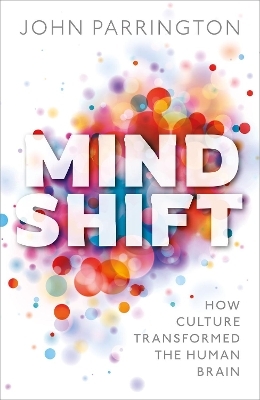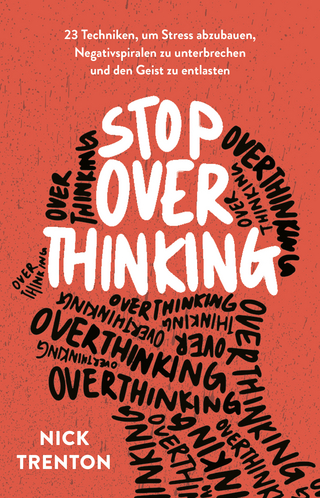
Mind Shift
Oxford University Press (Verlag)
978-0-19-880163-4 (ISBN)
John Parrington argues that social interaction and culture have deeply shaped the exceptional nature of human consciousness.
The mental capacities of the human mind far outstrip those of other animals. Our imaginations and creativity have produced art, music, and literature; built bridges and cathedrals; enabled us to probe distant galaxies, and to ponder the meaning of our existence. When our minds become disordered, they can also take us to the depths of despair. What makes the human brain unique, and able to generate such a rich mental life?
In this book, John Parrington draws on the latest research on the human brain to show how it differs strikingly from those of other animals in its structure and function at a molecular and cellular level. And he argues that this 'shift', enlarging the brain, giving it greater flexibility and enabling higher functions such as imagination, was driven by tool use, but especially by the development of one remarkable tool - language.
The complex social interaction brought by language opened up the possibility of shared conceptual worlds, enriched with rhythmic sounds, and images that could be drawn on cave walls. This transformation enabled modern humans to leap rapidly beyond all other species, and generated an exceptional human consciousness, a sense of self that arises as a product of our brain biology and the social interactions we experience.
Our minds, even those of identical twins, are unique because they are the result of this extraordinarily plastic brain, exquisitely shaped and tuned by the social and cultural environment in which we grew up and to which we continue to respond through life. Linking early work by the Russian psychologist Lev Vygotsky to the findings of modern neuroscience, Parrington explores how language, culture, and society mediate brain function, and what this view of the human mind may bring to our understanding and treatment of mental illness.
John Parrington is an Associate Professor in Molecular and Cellular Pharmacology at the University of Oxford, and a Tutorial Fellow in Medicine at Worcester College, Oxford. He is the author of The Deeper Genome (Oxford University Press, 2015) and Redesigning Life (Oxford University Press, 2016), and has published over 100 peer-reviewed articles in science journals including Nature, Current Biology, Journal of Cell Biology, Journal of Clinical Investigation, The EMBO Journal, Development, Developmental Biology, and Human Reproduction. He has extensive experience writing popular science, having published articles in The Guardian, New Scientist, Chemistry World, and The Biologist. As a British Science Association Media Fellow he worked as a science journalist at The Times; he has also written science reports for the Wellcome Trust, British Council, and Royal Society, and spoken about science to audiences at national events and festivals.
Introduction
Part 1: Origins of Mind
1: Mind and Matter
2: Tool and Symbol
3: Individual and Society
Part II: Mind and Brain
4: Nerve and Brain
5: Genome and Epigenome
6: Growth and Development
Part III: The Dynamic Mind
7: Learning and Memory
8: Thought and Language
9: Creativity and Imagination
10: Emotion and Reason
11: Conscious and Unconscious
Part IV: Mind in Trouble
12: Sanity and Madness
13: Depression and Anxiety
14: Normality and Diversity
15: Crime and Punishment
Part V: The Social Mind
16: Class and Division
17: Resistance and Rebellion
Part VI: Mind and Culture
18: Music and Rhythm
19: Art and Design
20: Fact and Fiction
21: Science and Technology
Part VII: The Future of Mind
22: Mind and Meaning
23: Mind and Machine
A 21st Century Mind
Glossary
Endnotes
| Erscheinungsdatum | 18.03.2021 |
|---|---|
| Zusatzinfo | 41 black and white images |
| Verlagsort | Oxford |
| Sprache | englisch |
| Maße | 163 x 243 mm |
| Gewicht | 794 g |
| Themenwelt | Sachbuch/Ratgeber ► Natur / Technik |
| Geisteswissenschaften ► Psychologie | |
| Naturwissenschaften ► Biologie ► Humanbiologie | |
| Naturwissenschaften ► Biologie ► Zoologie | |
| ISBN-10 | 0-19-880163-7 / 0198801637 |
| ISBN-13 | 978-0-19-880163-4 / 9780198801634 |
| Zustand | Neuware |
| Informationen gemäß Produktsicherheitsverordnung (GPSR) | |
| Haben Sie eine Frage zum Produkt? |
aus dem Bereich


